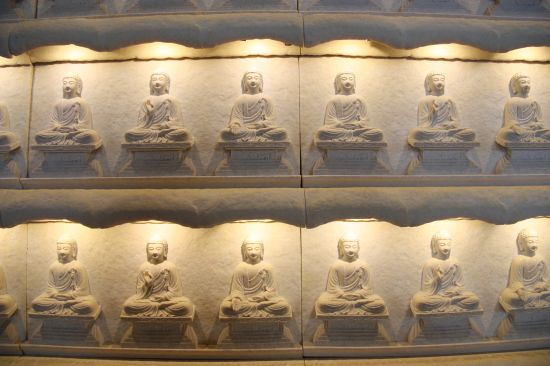Special Topics
Q2: Why are we afraid of taking the precepts when we clearly know that it is good for us? How do we overcome this uncertainty?
 Some people worry that, after taking the precepts, breaking them will lead to karmic retribution. In fact, regardless of whether we receive the precepts or not, the law of causality is still present.
Some people worry that, after taking the precepts, breaking them will lead to karmic retribution. In fact, regardless of whether we receive the precepts or not, the law of causality is still present.The Buddha established the precepts out of compassion for all sentient beings. This is why he earnestly and repeatedly exhorted us to follow the precepts, in order to prevent us from having to suffer negative karmic results. As a Buddhist saying goes: "Bodhisattvas fear the causes, whereas sentient beings fear the consequences." Sentient beings are fearful only when confronted with karmic retribution as a ripened result. Afterward, they tend to forget all about it, once it is overcome. Therefore, by upholding the precepts as a preventative measure and putting in efforts in the causal stage, we can naturally receive karmic rewards in the future as a wholesome result.
Taking the precepts not only serves as a self-reminder that enables us to cultivate a more stable mind, but it also forms the practice of giving by showing loving-kindness to all beings. When we make a vow before the Buddha to uphold the precept of no killing, we are making a promise to all sentient beings: "I won't hurt you." Afterward, even if we accidentally kill a mosquito or a cockroach, only a small number would be harmed in comparison. That is, it would not compromise the fact that you have made a vow to innumerable sentient beings, and that represents immense compassion.
Similarly, if you have made the vow to refrain from taking what is not given, lying and deceiving, and committing sexual misconduct, people around you will feel safe. They won't have to worry about having their belongings stolen, doubting your sincerity, their belongings being stolen, and being fearful of your possible offensive acts. With a sense of security, people will not have to be constantly on their guard when they're interacting with you. So, naturally, you will enjoy better interpersonal relationships.
Once we understand this truth, we will happily abide by the precepts, bringing peace to ourselves and others by cultivating good relationships everywhere.
Extended Reading:
Observing the Precepts Allows One to Feel at Ease
To Observe Precepts, One Needs to Have the Right View and Follow the Middle Path
Using the Psychology of Habit to Create the Right Conditions for Keeping the Precepts
Keeping Precepts, a Life Experiment
Q1: I love and enjoy freedom. So what if I lose my freedom after receiving the precepts?
Q2: Why are we afraid of taking the precepts when we clearly know that it is good for us? How do we overcome this uncertainty?
Q3: Is there any room for flexibility in upholding the precepts? If so, how do we maintain this flexibility without losing the spirit of the precepts?
Q4: Is it enough to just do good deeds regularly, or is it necessary to also observe the precepts? How should the precepts be broadly applied in our daily lives?
Q5: How do we encourage our family and friends to observe the precepts? What if they cannot take the whole precepts all at once?
Resource: Humanity Magazine #445 (人生雜誌第445期)
Translated by: Ariel Shen (沈純湘)
Edited by: Chia-cheng Chang (張家誠), Keith Brown
Photo: Yao-chung Chang (張曜鐘)
